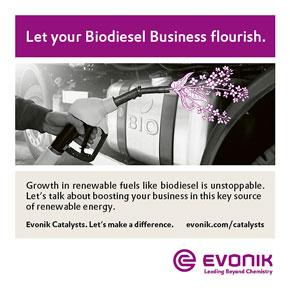Sweden sees growth in HVO diesel sales for Q3 2017
Sweden increased use of hydrotreated vegetable oil (HVO) diesel is helping to boost its biofuels industry, according to new research.
HVO diesel is a renewable diesel made from different bio-based raw materials.
Sales of HVO diesel increased by 24% during the third quarter of 2017 compared with the corresponding period for 2016, according to preliminary figures from Statistics Sweden (SCB) analysed by the Swedish Bioenergy Association (Svebio). However, other transportation biofuels have not developed positively.
Clean FAME diesel, known as B100, backed by 32%.. Ethanol like E85 and ED95 decreased by 16%. The biggest increase, 111%, was for HVO100 noting a sales records in September.
For the first time ever over 50 000 m3 of a biofuel was sold in a single month. The record is now 52 592 m3 for HVO100 in September which is more than all ethanol, FAME diesel and biomethane combined. In addition, the HVO100 volume is now twice as big as all FAME and ten times larger than all B100.
In the third quarter of 2017, the renewable share of sold fuel was 20.1% on an energy basis, which is a record. For the year 2016, the share was 18.5%. For diesel delivered to the Swedish transport market, 26.4% was biodiesel in energy terms, according to Svebio’s analysis of statistics from SCB.
HVO is manufactured from a variety of waste and residual products, such as tall oil from the forest industry and recycled vegetable and animal oils and fats. FAME consists almost exclusively of rapeseed diesel, RME, which is manufactured from rapeseed, an oilseed widely grown in Sweden and Europe as a rotation crop.
Biodiesel is sold both as pure biodiesel fuel, HVO100 and B100, and blended into fossil diesel. HVO100 is Sweden’s second largest biofuel after blended HVO. Many hauliers and bus companies have made major investments in biodiesel in recent years.
Fossil-free transport sector
According to Svebio, the extensive use of HVO greatly reduces greenhouse gas (GHG) emissions from Swedish traffic. At the same time, high-blend ethanol and FAME have occasionally been taxed, which reduced sales. This tax will be removed at the turn of the year.
“It is important for Sweden to be able to move towards a fossil-free transport sector, a goal that our politicians hope to reach a bit after 2030,” said Tomas Ekbom, Svebio’s fuel expert.
For vehicle gas, there were no major changes except that the proportion of fossil gas in the vehicle gas decreased sharply by around 56%. Vehicle gas now has a renewable biomethane share of more than 90%.
Ekbom said: “What we need now is further clarification about the long-term tax conditions for biofuels, so that we can start investments in increased Swedish production. We need to develop and demonstrate new technology to make biodiesel from other forest raw materials than tall oil, which is a limited resource.”
Sweden together with Finland leads Europe in introducing transportation biofuels. Most of the EU member states are far from the 2020 target of 10% renewable fuel in transport.












